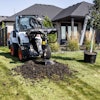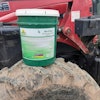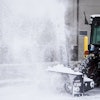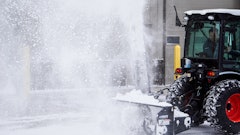Has it finally happened? Are the days when mom-and-pops could make it in this business a thing of the past? It seems like everyone’s after big numbers and bigger dealers. Just look at what John Deere sees as its dealer of the future.
I’ve been hearing about the John Deere consolidation efforts for the past few years. It started when a dealer dropped me an e-mail in January 2004, expressing a sense of bewilderment that rivaled my personal sense of bewilderment when Dennis Kucinich announced his intentions to once again pursue the U.S. presidency in 2008. The dealer told me his three-location, $10 million-plus business was no longer good enough. He was being pressured to sell out.
Now a few years later, this dealer is still holding his ground. In fact, he’s grown revenue an additional 55% or so from his 2003-2004 level. But he’s still feeling the heat.
His district manager said Deere’s model dealer is $50 million in annual sales, with as large a footprint as needed to attain that level. Fortunately for this dealer, John Deere says it will continue to honor his contract, at least until the day he dies. “I will keep selling and prove to them that as long as I take breath, my store will stay open,” this dealer proudly says.
I’m not here to knock John Deere and its decision to drastically reduce the number of dealer principals it does business with. Just as it makes sense for you to do business with as few vendors as possible, it makes sense for a manufacturer to do business with as few retail partners as possible, so long as those partners provide the same market coverage and aftermarket support.
I’m also not here to editorialize on the notion that John Deere is “encouraging” its remaining dealers to subject their businesses to a “purification process,” thereby purging most competing lines from their dealerships. Obviously, that’s a tantalizing proposition to John Deere. And if the individual dealer has no qualms about it, onward and upward, as they say. My guess, though, is that at least a few dealers will have some qualms.
Industry groups like NAEDA, and possibly a few legal types, will have to sort those things out. See, I’m not a lawyer ... and I’ve never even played one on TV.
I’m more interested in what could happen to the 1,000 or so Deere dealers who are “nudged” out. Some are nearing retirement age and will simply hang it up. Others are not, many of whom carry additional lines such as commercial mowers, handheld and tractors. Early indications are that quite a few of these dealers are continuing on with their other lines, and perhaps supplementing their product offering with an additional line or two.
That’s good to hear. These are undoubtedly strong dealers with a high level of business acumen. There are plenty of good manufacturers and distributors for them to partner with.
This industry was built on the mom-and-pops, but has become increasingly “big business.” Does that mean there is no place for the mom-and-pops at the dealer level any longer? I don’t think so.
Read about Parkrose Mower to see how a Tier 1 dealership continues to cater to its niche in order to remain viable. Also, read about Moen Machinery to see how a big-iron, Tier 3 dealership draws on its humble, customer-centric beginnings to retain customers and grow.
The dealer network continues to consolidate. But it’s not only the mom-and-pops that are closing their doors. Sometimes it’s huge, multi-million-dollar dealerships, such as my John Deere informant, who are facing an earlier-than-planned exit. “I’m still fighting this battle,” he says. A lot of dealers are, John Deere or otherwise. One of the keys to winning the battle will be knowing who your friends really are.
Visit www.yardngarden.com to sign up for our free, bi-weekly e-mail newsletter.













![Doosan Bobcat Wacker Neuson Stack 2ec Js Pb V6e[1]](https://img.greenindustrypros.com/mindful/acbm/workspaces/default/uploads/2025/12/doosan-bobcat-wacker-neuson-stack2ecjspbv6e1.CPyyz8ubHn.png?ar=16%3A9&auto=format%2Ccompress&bg=fff&fill-color=fff&fit=fill&h=135&q=70&w=240)

